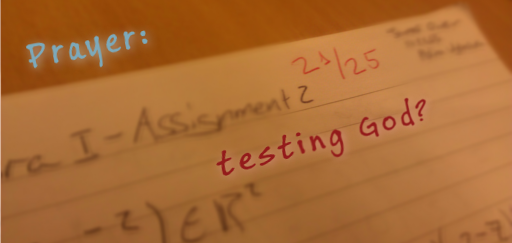The story is famous: when Elijah went looking for God, he searched for him in the grandiose, in the mighty, in the massive. But he didn’t find him there – instead, he found it in the still small voice. One way to read this is to realise that, for instance, our busyness or our worries stops us from hearing God. Yet there is a lot more to the “still, small voice” than this.

Photo: adapted from Joe Lencioni, under CC License
The story also depicts us and our own expectations: it describes how we think God will show up in great and marvellous ways; and forget that he also shows up in the mundane. Ignoring God’s presence and action in the everyday life, may be just down to our desire to retain control over the mundane:
- in remembering the miraculous (that Jesus fed the multitude with barely anything), we find an excuse to forget the example that is set (for instance, that people were fed and welcomed. Or that the start of it was food belonging to the disciples, not conjured up out of thin air.
- in looking at the big miracles first – and yes, that includes the resurrection – we allow ourselves to box Jesus into someone who concerns himself only with the big issues. Jesus performed miracles, yes. But that is far from being his predominant activity over his three-and-a-bit-year ministry.
- in thinking in terms of salvation first – whether it be issues of soteriology, eschatology or predestination – we shockingly allow ourselves to make Jesus irrelevant to our day-to-day lives.
The truth is far more beautiful: God is relevant to our lives: as a model to follow, someone to imitate, yes. But also, and just as importantly, God is a constant presence in our lives: someone who cares about the mundane and acts in the little things as well as the big.
I think it’s important to remind ourselves that our prayers should not be limited to the supernatural, the unexpected. I myself have a tendency to push prayer to the extreme: to ask beyond my expectations of what might actually happen. And there is a place for such bold prayers. But not all prayers should be reaching for what we couldn’t do ourselves.
Because I’m afraid that if we do limit our prayers to what we couldn’t do ourselves, we quickly reach a stage where we feel we have to sort ourselves out before we can come before God. And then, those areas of our lives that most need healing, we cut off from the one person who can heal them.
When’s the last time you prayed for the natural rather than the supernatural?
Have you ever felt your situation did not merit God’s attention?


